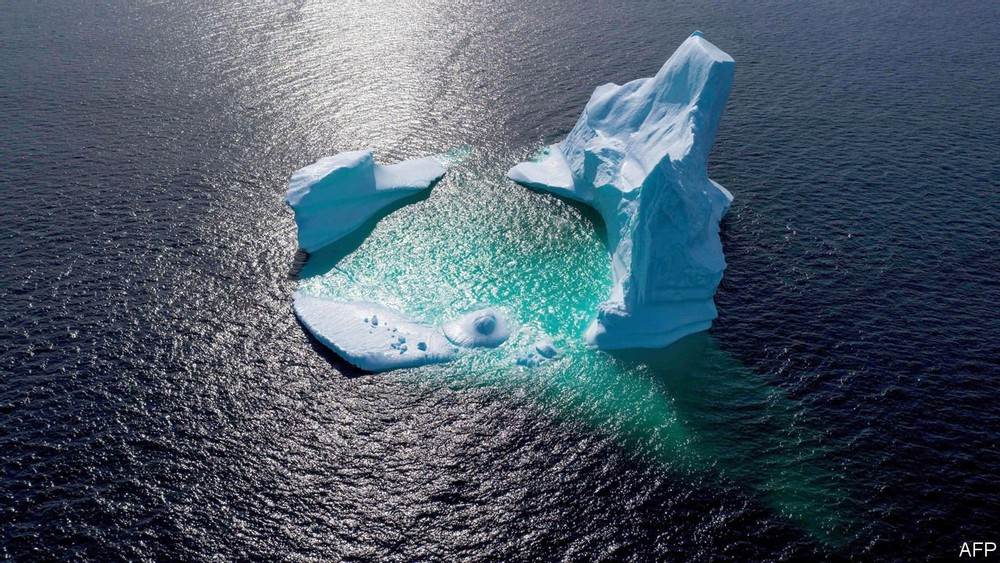EU-Backed Research Reveals the Oceans' Dangerous State
Ocean temperatures and water levels are rising as a consequence of human interference, which is impacting sea life and weather patterns.
-

Loss of Arctic sea ice could contribute to regional warming (AFP)
A report by DW cited the Copernicus Marine Environmental Monitoring Service highlighting the rate at which oceans are changing due to human interference.
Melting ice caused by the warming of oceans led sea levels to rise by 2.5 millimeters per year in the Mediterranean sea and 3.1 mm worldwide each year.
As an example of the impending consequences, the report cited the Venice flooding that took place in November 2019 when the water level rose by 1.89 meters.
"Marine life is migrating to cooler waters," the report says. Warmer waters are also creating problems for the populations of some sea-dwelling species, causing their number to decrease.
Arctic ice hits lowest level
The report found that the Arctic lost, between 1979 and 2020, an area of ice about six times the size of Germany, which culminated in the Arctic ice reaching its "lowest levels in the last two years." This could contribute to regional warming and cause changes in "global weather patterns."
Karina von Schuckmann, chair of the Ocean State Report, announced in a statement accompanying the report, "Climate change, pollution, and overexploitation have caused unprecedented stress on the ocean."
IPCC: 1.5 degrees will be crossed in the next 15 years
This report comes almost two months after a report from the Intergovernmental Panel on Climate Change (IPCC) found that the key 1.5 degrees Celsius (2.7 degrees Fahrenheit) threshold in the fight to stop climate change will be crossed within the next 15 years.

 2 Min Read
2 Min Read









